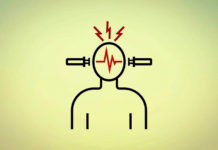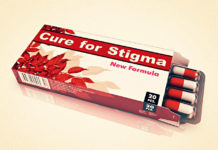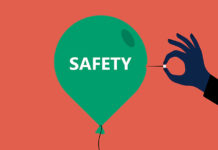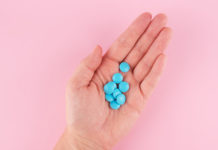Will the European Elections Be a Chance for Mental Health?
European citizens from 27 different countries will soon go to the polls to elect their representatives in the European Parliament for the next five years. As an advocacy organisation, we see those elections as an opportunity to call on current and future European leaders and policymakers to bring mental health to the heart of European policies.
“Let’s Not Go Overboard About ECT”
In an internet email discussion among a large group of supposedly enlightened mental health professionals, few came forward to outright condemn or ban ECT. One participant responded to my comments with, "It worries me how this debate gets so polarized." This refusal to say or to accept something polarizing is a hallmark of most so-called reformers in the field of mental health.
How “Mental Health Awareness” Exploits Schoolchildren
Imagine being a parent at a meeting with educators to discuss Johnny's academics or behavior. Suddenly, your child’s teacher is telling you that he needs to see a doctor for an assessment of a suspected “mental disorder,” which usually leads to a prescription for medication. Warned of “the risks against failing to intervene,” you will likely acquiesce.
Why Many Doctors Are Authoritarians – and Harmful
It is important to illuminate the authoritarian nature of mental health professionals—especially those who have not rebelled in any way against their professional socialization. Here I will summarize an analysis from the Journal of Medical Ethics on the variables in “contemporary medical culture” that produce doctors who are authoritarian and harmful.
Why Are So Many Americans Seeking Medication for Distress?
How do we explain the high demand for mind-numbing chemicals in America? Is it due to the development of new, improved "medications"? Is it due to the invention of new "diagnoses"? Is it due to life here becoming more stressful and traumatic? Or is it something else? Have we become less tolerant of distress?
Psychiatric Medications: Who Decides?
One “side effect” of meds is that they can reinforce people’s passivity towards their emotions, obscuring an understanding of themselves as having agency, as being the active creators of their lives — including their emotional lives. This has to be on the table in talking with clients about whether they want medications to be part of their development picture.
I Don’t Believe in Autism
The conversation about what truly constitutes “autism” is an ongoing one. Although I resist the label personally, I do not begrudge anyone for identifying as autistic, or seeking out an autism diagnosis. Leaving this discussion within the domain of medicine is limiting. That’s why a new discourse is emerging, not among doctors, but among activists who push for autistic self-advocacy.
Psychiatry, Society and Stigma: Placing the Blame Where It Belongs
I believe that those who understand psychiatry’s self-serving claims and want to be most effective in a campaign of re-education must never lose sight of the critical role of language in the forming of public opinion. Here I will use the example of stigma to illustrate psychiatry's “War of the Words.”
Assessing Outcomes at the Alternative to Meds Center: Survey Results Prove Promising
I am often contacted by organizations seeking help with documenting how their efforts make a statistically significant difference when it comes to their clients’ success. Let’s take a look at some of the essential aspects that must be considered for those seeking documentation of evidence-based treatment.
Nasal Spray for Depression? Not So Fast
Several members of the FDA Advisory Committee perceived this new drug as a potential “game changer” in the way depression is treated. I, however, am NOT one of them. I take my role as the Consumer Representative very seriously and want to make sure that any pharmaceutical drug that the FDA approves shows greater benefit than potential harm.
Loneliness Cure: Red or Blue Pill?
Does this "loneliness pill" concept amount to encouraging people to stay in their homes and take a pill rather than get socially connected in their communities or reach out to those who need it? Even if a pill could generate the same effects as physical and emotional closeness between humans, is it the right thing to do?
Institutional Corruption in the Cochrane Collaboration
My story is not just about the personal costs of speaking truth to power. This is a story about institutional corruption and one of the worst show trials in academia that you can imagine. I have written a book that documents the truth, backed by leaked board room recordings, private emails and testimony from concerned citizens.
Funder Fragility and Forced Collaboration
Dear Funder, You say you want to work on health equity but can you walk the talk? Do you care about hearing the actual community? Do you REALLY want data-driven, accurate info to balance harm vs benefit? Or do you just want to keep your status quo? Dear Funder, Don't be fragile. Move beyond your blind spots. Our people matter.
‘Full Moral Status’ Part II: How to Achieve Safety, Parity, and Change
If you want to leave the system and the drugs and get your diagnosis removed, the following guide might stimulate some effective action. Like with many of life's challenges, having excellent re$ources could potentially gain these results more quickly, but the most important elements are attitude, awareness and strategy.
“I’m Not Going, You Can’t Make Me!”: A Community Approach to School Refusal
Consider an imaginary child called Jack who has been avoiding school as much as possible for a month. Standard practice would be cognitive-behavioral therapy or psychoactive drugs to help Jack deal with his anxiety. But what if Jack's social network instead mobilized to help him regain the role of student?
The War on Antidepressants: Why We Need to End it for Public Benefit
In the interest of the patients who are currently experiencing withdrawal reactions and the many more who will suffer withdrawal effects in the future, we need to end this “war.” Academic psychiatry must address these problems and conduct thorough research on withdrawal reactions.
Orthodox Madness
The Orthodox believe that we are all mentally ill due to sin and that the Orthodox Church is the hospital for the soul, the psychiatric hospital with God being our Psychiatrist, the Physician of our souls. Orthodox belief regarding the human psyche may appear to be pure madness, even delusional, from the perspective of modern western medical science.
ASIST Suicide Prevention Training: “Safe” for Who?
Ever since the cops and CPS were called on me by someone at an ASIST Suicide Prevention training, I've been trying to see it all as a gift. What better proof to counter those who claim it's "safe" to tell than what happened to me? What better evidence that our system responses are seriously off track? It wasn't safe. Not for me.
Spiritual Texts in the Psych Ward
With current self-publishing capabilities, there’s little that can stop anyone with the slightest messianic complex from actualizing their potential as a prophet—except perhaps the tactics psychiatry employs: forced drugging, locking people up and limiting their abilities to communicate with the rest of the world.
How Long Does Antidepressant Withdrawal Last?
The patient experiencing the pain of withdrawal believed that they would feel better when they stopped taking their antidepressants. After all, they’re under the care of a board-certified medical professional who has vowed to do no harm. But despite those reassurances, they find themselves in a world of hurt.
Why the ‘Psychological Injury Model’ Will Ultimately Triumph
The Psychological Injury model will triumph, not just because literally thousands of studies show how trauma and stressful life events result in mental health problems, but because at our core, we know it is true. People hurt people, and people heal people. This cracks the intellectual foundation of psychopharmacology.
Traumatic Immobility: Depression as a Stress Response
What if we don't have a depression epidemic, but a stress epidemic of traumatic proportions? What if we've been steered away from learning how our minds and bodies actually work, and into believing that our attempts to survive traumatic, threatening real-life circumstances are "symptoms of mental illness"?
“Not all NAMIs!”: Why Even the Best Local NAMI Chapter is Still a Problem
Every time I write about NAMI, at least one person approaches me and says, “But not all NAMIs!” Yes, all NAMIs. Every. Last. One. Because even the best of the local chapters are benefiting from the systemic oppression perpetuated by the dominant group to which they are tied. They all participate somehow in sustaining the imbalance.
“ADHD: A Return to Psychology” Video Series
Most people believe that children diagnosed with ADHD misbehave because they possess an inferior inhibitory system that renders them less able to suppress unacceptable actions. However, this belief has numerous shortcomings. This series of videos challenges these assumptions and offers alternative explanations for why a child may exhibit ADHD behaviors.
Martin Luther King Jr. and the Psychiatric Violence Survivor Movement
My question to the mental health reform movement, the mad movement, the critical psychiatry movement — whatever we call our movement — is: Will we join the movement to make real change, to get to the heart of human freedom and work to fulfill the promise of democracy against control by monied elites?

































